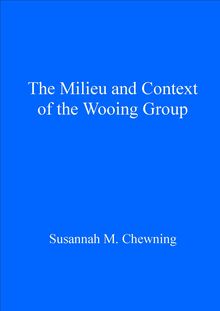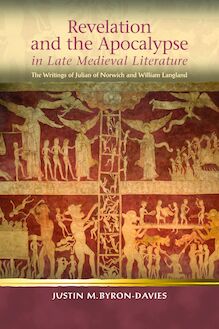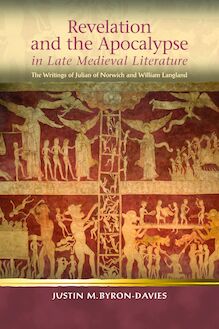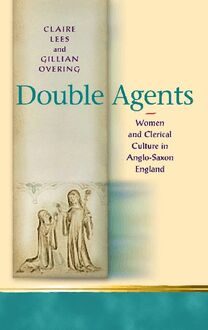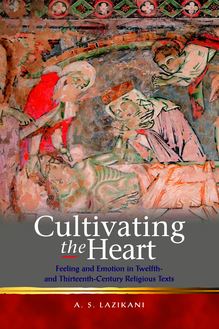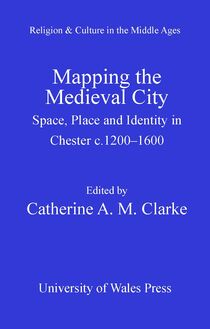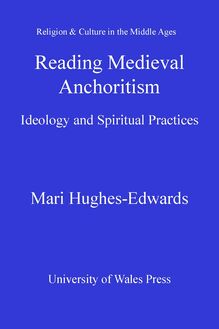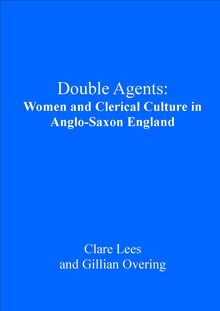-
 Univers
Univers
-
 Ebooks
Ebooks
-
 Livres audio
Livres audio
-
 Presse
Presse
-
 Podcasts
Podcasts
-
 BD
BD
-
 Documents
Documents
-
- Cours
- Révisions
- Ressources pédagogiques
- Sciences de l’éducation
- Manuels scolaires
- Langues
- Travaux de classe
- Annales de BEP
- Etudes supérieures
- Maternelle et primaire
- Fiches de lecture
- Orientation scolaire
- Méthodologie
- Corrigés de devoir
- Annales d’examens et concours
- Annales du bac
- Annales du brevet
- Rapports de stage
La lecture à portée de main
Vous pourrez modifier la taille du texte de cet ouvrage
Découvre YouScribe en t'inscrivant gratuitement
Je m'inscrisDécouvre YouScribe en t'inscrivant gratuitement
Je m'inscrisEn savoir plus
Vous pourrez modifier la taille du texte de cet ouvrage
En savoir plus

Description
Soul-Health explores the connection between reading and healing. The act of reading engages deeply with our emotions and psychology, and this book broadens our understanding of that process by the surprising revelation that feeling bad has been understood as the best thing for mental and spiritual health. The mental and emotional impact of reading expanded in the Middle Ages into a therapeutic tool for improving the health of the soul – a state called salus animae – and focusing on later Medieval England, the present study explores a core set of religious texts that identify themselves as treatments for the soul. These same texts, however, evoke powerfully negative emotions. Soul-Health investigates each of these emotions, offering an analysis of how fear, penance, compassion and longing could work to promote the health of the soul, demonstrating how interest in mental and spiritual health far pre-dates the modern period, and is more complex and balanced than simply trying to achieve joy.
Series Editors’ Preface
Acknowledgements
Abbreviations
Note on Editions and Translations
Introduction: Cura Animarum
Apprehensive Medicine
Lyrical Treatment
Compassionate Healing
Longing for Health
Dangerous Reading
Conclusion: Sowle-hele
Notes
Select
Bibliography
Index
Sujets
Informations
| Publié par | University of Wales Press |
| Date de parution | 15 octobre 2018 |
| Nombre de lectures | 0 |
| EAN13 | 9781786833334 |
| Langue | English |
Informations légales : prix de location à la page 0,2500€. Cette information est donnée uniquement à titre indicatif conformément à la législation en vigueur.
Extrait
RELIGION AND CULTURE IN THE MIDDLE AGES
Soul-Health
Series Editors
Denis Renevey (Université de Lausanne)
Diane Watt (University of Surrey)
Editorial Board
Miri Rubin (Queen Mary University of London)
Jean-Claude Schmitt (École des Hautes Études en Sciences Sociales, Paris)
Fiona Somerset (Duke University)
Christiania Whitehead (University of Warwick)
RELIGION AND CULTURE IN THE MIDDLE AGES
Soul-Health
THERAPEUTIC READING IN LATER MEDIEVAL ENGLAND
DANIEL McCAN
© Daniel McCann, 2018
All rights reserved. No part of this book may be reproduced in any material form (including photocopying or storing it in any medium by electronic means and whether or not transiently or incidentally to some other use of this publication) without the written permission of the copyright owner except in accordance with the provisions of the Copyright, Designs and Patents Act. Applications for the copyright owner’s written permission to reproduce any part of this publication should be addressed to University of Wales Press, University Registry, King Edward VII Avenue, Cardiff CF10 3NS.
www.uwp.co.uk
British Library Cataloguing-in-Publication Data A catalogue record for this book is available from the British Library.
ISBN 978-1-78683-331-0
e-ISBN 978-1-78683-333-4
The right of Daniel McCann to be identified as author of this work has been asserted in accordance with sections 77 and 79 of the Copyright, Designs and Patents Act 1988.
The publisher has no responsibility for the persistence or accuracy of URLs for any external or third-party internet websites referred to in this book, and does not guarantee that any content on such websites is, or will remain, accurate or appropriate.
Cover image: Georges de La Tour, Magdalene with the Smoking Flame (c.1640), Musée du Louvre. By permission, Pictures Now / Alamy Stock Photo. Cover design: Olwen Fowler
C ONTENTS
Series Editors’ Preface
Acknowledgements
Abbreviations
Note on Editions and Translations
Introduction: Cura Animarum
1 Apprehensive Medicine
2 Lyrical Treatment
3 Compassionate Healing
4 Longing for Health
5 Dangerous Reading
Conclusion: Sowle-hele
Notes
Select Bibliography
S ERIES E DITORS ’ P REFACE
Religion and Culture in the Middle Ages aims to explore the interface between medieval religion and culture, with as broad an understanding of those terms as possible. It puts to the forefront studies which engage with works that significantly contributed to the shaping of medieval culture. However, it also gives attention to studies dealing with works that reflect and highlight aspects of medieval culture that have been neglected in the past by scholars of the medieval disciplines. For example, devotional works and the practice they infer illuminate our understanding of the medieval subject and its culture in remarkable ways, while studies of the material space designed and inhabited by medieval subjects yield new evidence on the period and the people who shaped it and lived in it. In the larger field of religion and culture, we also want to explore further the roles played by women as authors, readers and owners of books, thereby defining them more precisely as actors in the cultural field. The series as a whole investigates the European Middle Ages, from c .500 to c .1500. Our aim is to explore medieval religion and culture with the tools belonging to such disciplines as, among others, art history, philosophy, theology, history, musicology, the history of medicine, and literature. In particular, we would like to promote interdisciplinary studies, as we believe strongly that our modern understanding of the term applies fascinatingly well to a cultural period marked by a less tight confinement and categorization of its disciplines than the modern period. However, our only criterion is academic excellence, with the belief that the use of a large diversity of critical tools and theoretical approaches enables a deeper understanding of medieval culture. We want the series to reflect this diversity, as we believe that, as a collection of outstanding contributions, it offers a more subtle representation of a period that is marked by paradoxes and contradictions and which necessarily reflects diversity and difference, however difficult it may sometimes have proved for medieval culture to accept these notions.
A CKNOWLEDGEMENTS
This book is the result of my postdoctoral research fellowship, generously funded by the Leverhulme Trust. I thank them for their crucial assistance; without it this book and my chance of an academic career would not have been possible. Since 2012, the University of Oxford has been a home for me, and this book has benefited enormously from that institution and the vast resources and expertise it holds. In that respect it is a book born out of many interactions and conversations, and so I owe thanks to my colleagues and friends here. Such support came to me in the form of Freya Johnston at St Anne’s College, Edward Wilson from Worcester College, and Timothy Michael from Lincoln College: thank you all for your patient support and advice. I owe particular thanks to a number of the medievalists I met here: Mishtooni Bose, Kantik Ghosh, Laura Ashe, Marion Turner, Annie Sutherland, Philip Knox, Anya Adair, Kylie Murray, John C. Hirsh and Andy Orchard. Each has provided me with stimulating discussion, raucous wit and unique professional examples. Time is a more precious resource than anything else and my colleagues here have been extremely generous with theirs. For that I am truly grateful.
I owe especial thanks to a number of other medievalists. Mary Carruthers and Peregrine Horden have been two constant sources of support and encouragement, and I am very grateful for the time and attention each has given me since I came to Oxford and before that time. Also, Giuseppe Pezzini deserves a special commendation for spending his time (and patience) in teaching me Latin. Denis Renevey also deserves particular thanks, and he has been extremely generous with his time, expertise and advice. John Thompson and Malcolm Andrew also deserve thanks as my early mentors, as they encouraged me to develop into a medievalist, and made the majority of time at Queen’s University Belfast stimulating and enjoyable. Sr Maggie Ross has been a constant source of spiritual and intellectual advice, and I always enjoy our coffees together. The greatest debt of gratitude, however, is to Vincent Gillespie. I first met him in the form of my external examiner, and after a robust viva he has become both my mentor and my friend. His depth of knowledge is matched only by his generosity and scholarly humility, and he has always offered me his time, attention and advice. This book is, in many ways, the result of our conversations and the comments he made on early drafts. I am, and will always be, extremely grateful to him and the example he has given me.
Finally, I owe my dear wife Kathrin and my darling daughter Eloise a great deal of thanks. They have proved infinitely patient and kind with the grumpy man writing makes of me. Kathrin has been a constant source of support, encouragement, wisdom and love; and Eloise has been an inexhaustible source of joy. I dedicate this book to them, though no words can ever express the profound gratitude I feel for them and their love. Danke meine Lieben!
A BBREVIATIONS
EETS Early English Text Society (1864–) O. S. Original Series (1864–) E. S. Extra Series (1867–1920s) S. Supplementary Series (1970–)
MED Middle English Dictionary , ed. Hans Kurath and S. M. Kuhn (Ann Arbor: University of Michigan Press; London: Oxford University Press, 1952–) Online Version (Michigan, December 2001): http://quod.lib.umich.edu/m/med/
PL Patrologia cursus completus series Latina , ed. J. P. Migne, 221 vols (Paris: Garnier Frères, 1844–1905).
PG Patrologia cursus completus series Graeca , ed. J. P. Migne, 161 vols (Paris: Garnier Frères, 1857–1905).
N OTE ON E DITIONS AND T RANSLATIONS
Due to considerations of space, frequently cited editions of Middle English texts are given full references here on a per-chapter basis, with the specified short forms used for the rest of the book. All quotations are taken from the following editions:
I: The Speculum Vitae and The Prick of Conscience
Ralph Hanna (ed.), Speculum Vitae: A Reading Edition , EETS O. S. 331 (Oxford: Oxford University Press, 2008). Hereafter: SV.
Ralph Hanna and Sarah Wood (eds), Richard Morris’s Prick of Conscience: A Corrected and Amplified Reading Text , EETS O. S. 342 (Oxford: Oxford University Press, 2013). Hereafter: PoC.
II: The Penitential Psalms
Valerie Edden (ed.), Richard Maidstone’s Penitential Psalms: Edited from Bodleian MS Rawlinson A.389 (Heidelberg: Carl Winter, 1990). Hereafter: MPP .
III: The Prickynge of Love
Harold Kane (ed.) The Prickynge of Love , 2 vols (Salzburg: Institut für Anglistik und Amerikanistik der Universität Salzburg, 1983). Hereafter: Prickynge . Punctuation has been modernised.
IV: A Talking of the Love of God
Salvina Westra (ed.), A Talking of the Love of God (The Hague: Martinus Nijhoff, 1950). Hereafter: Talking . Punctuation has been modernised.
V: The Chastising of God’s Children
Joyce Bazire and Eric Colledge (eds), The Chastising of God’s Children, and The Treatise of Perfection of The Sons of God (Oxford: Basil Blackwell, 1957). Hereafter: Chastising .
VI: Works of Walter Hilton, the Cloud-author, and Julian of Norwich
Thomas H. Bestul (ed.), The Scale of Perfection (Kalamazoo, Michigan: Medieval Institute Publications, 2000). Hereafter: Scale .
Fumio Kuriyagawa (ed.), Walter Hilton’s Eight Chapters on Perfection (Tokyo: Keio University, 1967). Hereafter: Eight Chapters on Perfection .
Carl Horstmann (ed.), Of Angels Song , in Yorkshire Writers: Richard Rolle of Hampole, an English Father of the Church, and His Followers , 2 vols (London: Swan Sonnenschein, 1895–96), vol. 1, pp. 175–82. Hereafter:
-
 Univers
Univers
-
 Ebooks
Ebooks
-
 Livres audio
Livres audio
-
 Presse
Presse
-
 Podcasts
Podcasts
-
 BD
BD
-
 Documents
Documents
-
Jeunesse
-
Littérature
-
Ressources professionnelles
-
Santé et bien-être
-
Savoirs
-
Education
-
Loisirs et hobbies
-
Art, musique et cinéma
-
Actualité et débat de société
-
Jeunesse
-
Littérature
-
Ressources professionnelles
-
Santé et bien-être
-
Savoirs
-
Education
-
Loisirs et hobbies
-
Art, musique et cinéma
-
Actualité et débat de société
-
Actualités
-
Lifestyle
-
Presse jeunesse
-
Presse professionnelle
-
Pratique
-
Presse sportive
-
Presse internationale
-
Culture & Médias
-
Action et Aventures
-
Science-fiction et Fantasy
-
Société
-
Jeunesse
-
Littérature
-
Ressources professionnelles
-
Santé et bien-être
-
Savoirs
-
Education
-
Loisirs et hobbies
-
Art, musique et cinéma
-
Actualité et débat de société
- Cours
- Révisions
- Ressources pédagogiques
- Sciences de l’éducation
- Manuels scolaires
- Langues
- Travaux de classe
- Annales de BEP
- Etudes supérieures
- Maternelle et primaire
- Fiches de lecture
- Orientation scolaire
- Méthodologie
- Corrigés de devoir
- Annales d’examens et concours
- Annales du bac
- Annales du brevet
- Rapports de stage
